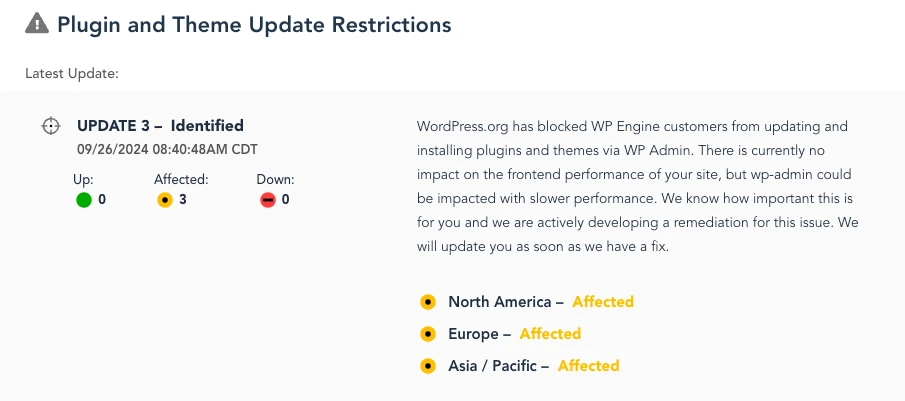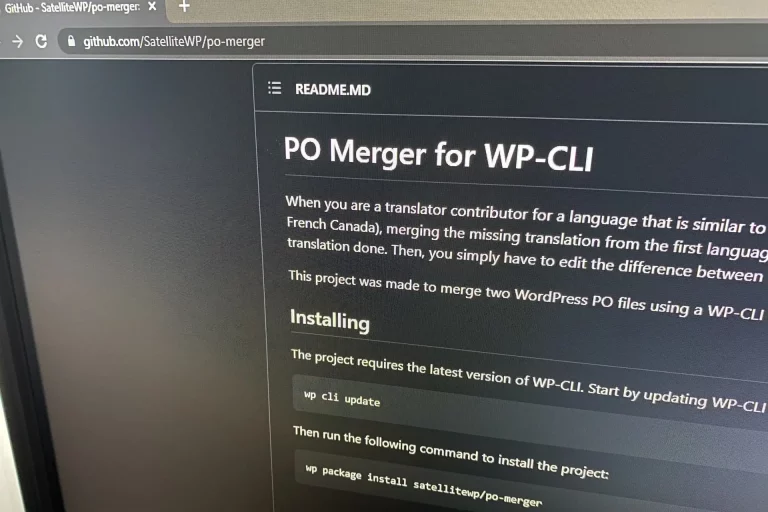WordPress bans WP Engine
WordCamp US, the largest WordPress conference on the globe, took place from September 17 to 20 and was quite eventful. During his presentation, the founder of WordPress and Automattic (the company behind WordPress), Matt Mullenweg, used his time on stage to make public a private conflict between WordPress and WP Engine, a hosting provider dedicated to WordPress.
Origin of the conflict
To summarize, Automattic is accusing WP Engine of unauthorized use of trademarks related to WordPress and WooCommerce with the intent to confuse users. Both WordPress and WooCommerce are properties of Automattic.
The conflict has reportedly been under discussion for quite some time, but no agreement has been reached.
Mullenweg decided to accelerate the process by making the matter public during his presentation at WordCamp US.
The stance of WordPress, through Mullenweg, was explained directly on his blog on September 21 in an article titled: WP Engine is not WordPress.
The Response
WP Engine quickly responded to Mullenweg’s attack, as a representative of Automattic, by publishing a letter demanding that they “Cease and Desist” in relation to the situation. Several screenshots of SMS messages, allegedly sent by Mullenweg, were included.
Automattic’s response was swift as well, publishing their own letter demanding WP Engine to “Cease and Desist,” still related to the same situation.
Then, the conflict escalated further when Mullenweg announced that WP Engine was banned from the WordPress.org ecosystem.
The direct impacts
And this is where things get important.
By being banned, WP Engine customers will no longer be able to:
- Update WordPress via the official WordPress.org servers;
- Install or update plugins from WordPress.org;
- Install or update themes from WordPress.org;
- Install or update translations from WordPress.org;
- Update the core of WordPress via WordPress.org;
- Access the directory of patterns or blocks;
- Access jobs, meetups, and conferences managed via WordPress.org;
- Access the WordPress.org forums;
- Access the WordPress.org bug tracker;
- and more…
WP Engine’s status page clearly shows that their infrastructure is affected.

Currently, this is a problem with severe consequences for WP Engine.
If you are a WP Engine customer
At this stage, it is difficult to predict the long-term impacts for WP Engine as it remains banned from WordPress.org. While there may be ways to work around the situation, it’s important to note that this will take time, and the workaround may only function temporarily.
It’s possible that the conflict could be resolved privately and quickly, but since WP Engine is backed by Silver Lake, a private equity firm managing $103 billion in assets, it is quite likely that the conflict could drag on for several weeks, months, or even years.
We must also wonder whether other WP Engine-related properties, such as the hosting provider Flywheel or the Advanced Custom Fields plugin, will be affected by the conflict. At the time of writing this article, there is no indication that they will be included in the dispute (directly or indirectly).
If you are a SatelliteWP customer for the management of your WordPress website and your site is hosted on WP Engine, we invite you to contact us directly to evaluate the options available to you.






